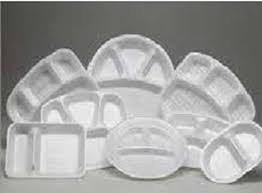How is thermocol recycled using orange peel extract?« Back to Questions List
|
Thermocol is a widely used form of polystyrene. Hundreds of years are needed for polystyrene to degrade in the natural environment. Orange peel solution has been identified as remedy for this environmental issue. Thermocol prevents water and moisture from seeping in. They are also capable of retaining the temperature. It is light in weight and easy to carry. At the same time it exhibits cushioning property. Due to these qualities, thermocol is widely used in packaging industry. Though, it can be recycled and mixed with concrete to produce stronger building products, a major portion is dumped as waste after usage. The new method of recycling of thermocol has been invented by a group of researchers in Indian Institute of Technology (IIT), Hyderabad. The innovation is the result of researches as part of Waste Management Programme. It is identified by them that thermocol dissolves instantaneously in a solution of orange peel extract without application of external heat, pressure or acid. This method is highly cheap and energy efficient method for recycling polystyrene and styroform. An expanded type of polystyrene is known as styroform. It is estimated that as of now less than 15% of polystyrene waste only is being recycled and that a major portion of remaining waste is dumped in landfills. Limonene, a component of orange peel extract is already known to be capable of dissolving polystyrene. But the new process is capable of dissolving polystyrene five times better. Of the 30 million tonnes of citrus fruits produced per annum across the globe, around 50% is wasted as citrus peel. A large portion of this waste is generated by fruit juice industry. In the simple process, polystyrene is dissolved in orange peel extract and is then drawn into fibres using wet/solution spinning. The fibre is then converted into non-woven fabric of one square foot size. The recycled polystyrene is widely used in household cleaning in kitchen because of its special capability to absorb oil. Recycled polystyrene can be applied for removal of oil spilling too. The process does not change the chemical composition of polystyrene to make it a biodegradable product. Instead, it extends the use and life cycle of polystyrene waste.
The innovation won a gold medal in the World invention and Innovation Forum (WIIF), 2017 held in Guangdong, China. The reaserch team of IIT has filed a patent application for the process and product. Rating of plasticsWhat is meant by hydrophobic sorbent? |

